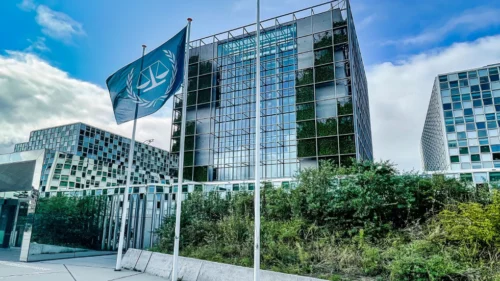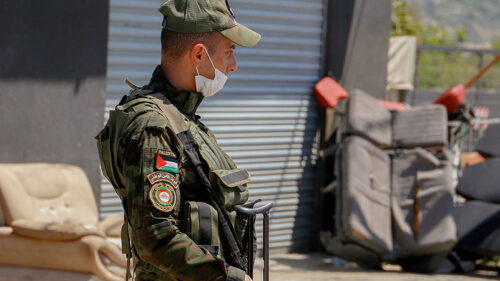In early April 2024, journalists from the Reuters news agency saw a document regarding the then-upcoming November G20 Summit. According to the document, Brazil would urge the Summit to grant heads of state immunity from prosecution before an international criminal tribunal, particularly the International Criminal Court (ICC), provided that their nations are not parties to the international treaty that created the court. According to the Reuters article, Brazil’s stance is of some assistance to Russian President Vladimir Putin, a friend of the BRICS (Brazil, Russia, India, China and South Africa) group, against whom the ICC has issued an arrest warrant for alleged war crimes related to Russia’s invasion of Ukraine. The Rome Statute, which establishes and organizes the ICC, is not a treaty to which Russia is a party.
Following news reports in November 2023 that French court authorities had issued an arrest warrant against the now-dethroned Syrian President Bashar al-Assad to prosecute him in France for war crimes, Brazil reportedly announced its determination to support the cause of heads of state immunity. The warrant is noteworthy because it aligns with a March 13, 2001 ruling by the French Cour de cassation, France’s highest criminal appellate court. The ruling seemed to acknowledge that a foreign head of state could be tried in France if the charge involved classic international crimes rather than just terrorism, for which the court recognized immunity at the time.
Debating immunity
There was no precedent for an effective international criminal tribunal before the Nuremberg Trials — the trials that prosecuted Nazi war criminals and vital leaders for their crimes in World War II — which started in 1945. Heads of state had immunity from each other’s national courts throughout that time. However, ongoing hostilities between nations occurred during that time, culminating in two World Wars that involved aggression, genocides, war crimes and crimes against humanity. It was a period of instability in peaceful relations between states. It may be unnecessary to directly attribute the Nuremberg effect — the resulting effect the trials had on international efforts to bring about justice — to the relative advancements in global peace and security.
Now, the debate over official immunity has spread beyond the boundaries of the United States. International discussions, like the ICC’s arrest order for Israeli Prime Minister Benjamin Netanyahu, brought to light the broader ramifications of Head of State immunity in international law. The ICC issued the warrant against Netanyahu and former Defense Minister Yoav Gallant on November 21, 2024. Pre-Trial Chamber I established reasonable grounds on allegations of suspected war crimes and crimes against humanity perpetrated in Gaza between October 8, 2023 and May 20, 2024.
As the first permanent court in history, the ICC’s goal is to bring an end to impunity for those who commit the most heinous crimes that the entire community finds problematic. The court’s authority is restricted to crimes committed by citizens of a State Party or on its territory, and it prosecutes people primarily for war crimes or crimes against humanity. The court’s legal foundation comes from the Rome Statute, which was approved by the UN Diplomatic Conference of Plenipotentiaries on establishing an International Criminal Court in 1998 and enacted in 2002. Currently, 124 nation-states are States Parties to the Rome Statute.
Enforcing arrest warrants
Enforcing an arrest warrant requires member states to hold anyone who enters their territory and transport them to a detention facility in the Netherlands, where the court is located. The defendant must be physically present for the trial to continue. Since the law applies to everyone equally, there is no established immunity in keeping with its mission to end impunity. According to Article 27 of the Rome Statute, a person’s official position as a head of state or government, a member of a government or parliament, an elected official or another official does not, in and of itself, absolve them of criminal liability under the Rome Statute.
In a news statement issued on November 27, 2024, the French government, a member state, expressed worries about possible restrictions on this clause concerning non-member nations like Israel. Regarding the immunities of States not parties to the ICC, the statement emphasized that a state cannot be forced to behave in a way that goes against its duties under international law. Such protections extend to Netanyahu and other pertinent ministries. According to the Foreign Ministry, they must be considered should the ICC request their arrest and surrender.
Rejecting immunity: a tenet of international law
State Immunity, rooted in customary international law, protects current and previous heads of state from prosecution in specific circumstances. This is predicated on the ideas of state sovereignty and interstate equality.
However, legal immunity experts point out that heads of state cannot assert immunity before the ICC, even if their countries have not ratified the treaty. The Palestinian territories have signed the convention using their position as a non-member observer state at the United Nations, notwithstanding Israel’s non-signatory status.
It should be emphasized that the rejection of immunity for even leaders of state accused of international crimes was one of the tenets of international law that emerged from the Nuremberg process. Heads of state would undoubtedly have believed, due to the Nuremberg effect, that the period of impunity for transnational crimes that endangered or disrupted global peace and security ended with World War II. To a young person, the idea that accountability for the same behavior represents a danger to peaceful ties between states may be incomprehensible.
[Lee Thompson-Kolar edited this piece.]
The views expressed in this article are the author’s own and do not necessarily reflect Fair Observer’s editorial policy.
Support Fair Observer
We rely on your support for our independence, diversity and quality.
For more than 10 years, Fair Observer has been free, fair and independent. No billionaire owns us, no advertisers control us. We are a reader-supported nonprofit. Unlike many other publications, we keep our content free for readers regardless of where they live or whether they can afford to pay. We have no paywalls and no ads.
In the post-truth era of fake news, echo chambers and filter bubbles, we publish a plurality of perspectives from around the world. Anyone can publish with us, but everyone goes through a rigorous editorial process. So, you get fact-checked, well-reasoned content instead of noise.
We publish 2,500+ voices from 90+ countries. We also conduct education and training programs
on subjects ranging from digital media and journalism to writing and critical thinking. This
doesn’t come cheap. Servers, editors, trainers and web developers cost
money.
Please consider supporting us on a regular basis as a recurring donor or a
sustaining member.
Will you support FO’s journalism?
We rely on your support for our independence, diversity and quality.







Comment